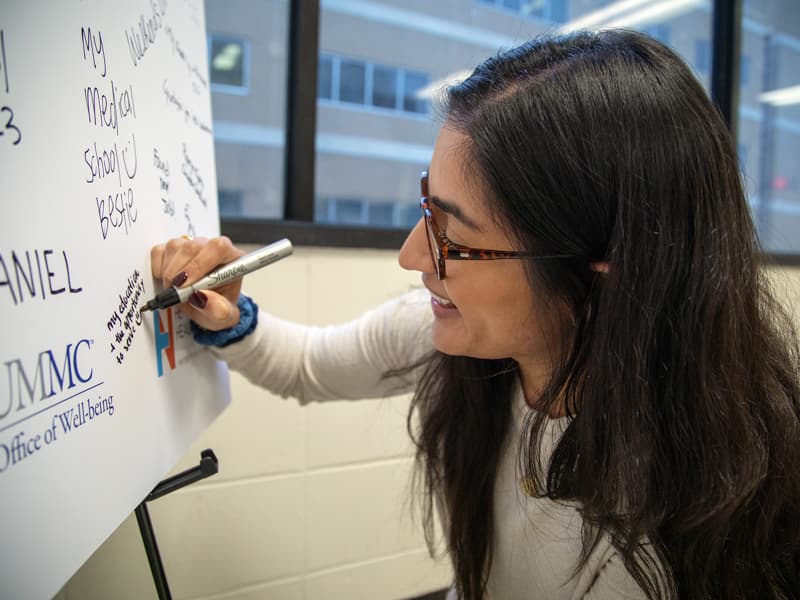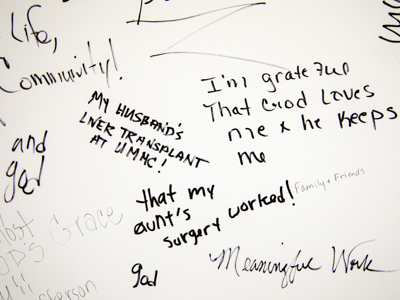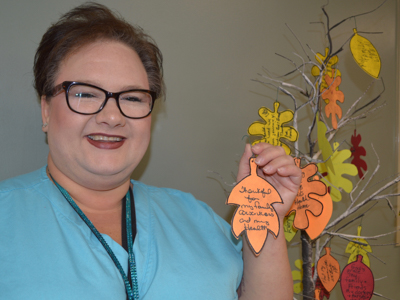UMMC experts agree: Gratefulness, good health go hand in hand

Dr. Akeem Adebayo took a leap of faith, one he says left him grateful and blessed.
The native of Ibadan, Nigeria, accepted the offer of a two-year residency in the Department of Preventive Medicine at the University of Mississippi Medical Center. He’s in his final year and preparing to begin fellowship training next summer.

“That leap of faith has turned to joy,” said Adebayo, who will be a fellow in addiction medicine at Tulane University. “Working with everyone here, and in my department, has been nothing more than blessings upon blessings.”
For Adebayo and others, the feeling of gratefulness is more than joy. It’s a healthy emotion that can pay dividends as you cope with day-to-day medical challenges.
“A depressed mind isn’t good for the body. You can’t focus on your job or healthy living,” Adebayo said. When feelings of gratefulness bring a person happiness, “your body secretes certain hormones that can help with well-being.”
Feeling grateful also can boost your personal relationships, said Dr. Daniel Williams, associate professor and director of the Division of Psychology in the Department of Psychiatry and Human Behavior.

“We know there are a lot of interpersonal benefits of being grateful for the nice things that people do for us,” said Williams, also associate director of the Medical Center’s Office of Well-Being. “It brings us closer together, creates a social bond, and makes us feel more emotionally connected. We have a deeper and better relationship.”
If someone you are close to is “low in gratitude, they can be the weak link in the relationship. They don’t recognize the good things about the relationship,” he said.
Gratitude “allows you to sometimes not notice some of the negative emotions and experiences as much,” Williams said. “Focusing on the positive allows some of the negative to slip away easier, like water off a duck’s back.”

For some, Williams said, gratitude can play a role in how you cope with specific conditions. “Taking time to recognize what is good in your life can improve anxiety and depression. It can affect blood pressure and other health outcomes.”
Look around campus this Thanksgiving season, and you’ll see such recognitions on large posters inviting students, faculty and staff to pen their messages of gratitude. It’s sponsored by the Office of Well-being, Healthy Nurse Healthy Nation, and Everyday Wellness.
Shannon Strong, a pharmacy technician and patient advocate at UMMC’s Cancer Center and Research Institute, believes in showing gratitude and giving patients the chance to do the same.
Strong several weeks ago placed a small artificial tree in a space where patients circulate. She crafted paper leaves that hang from the tree, each bearing a patient or employee personalized message of gratitude.

It may seem like a small thing, Strong said, but writing out emotions can go a long way in making patients feel happy. “Sometimes, they are thankful that their chemo treatments are over with,” she said. “It makes us feel good to let our patients feel good.”
Strong is a two-time heart attack survivor. “I’m thankful for my coworkers. I’m just thankful that I’m still here,” she said.
The holiday season, Williams said, gives us the chance to practice gratitude, rather than giving it a fleeting thought now and then.
“Take time over the next few months to recognize what we have in life that we really appreciate,” he suggests. “If we do it regularly, we might find that our quality of life improves, and we will feel more optimistic about life.”


